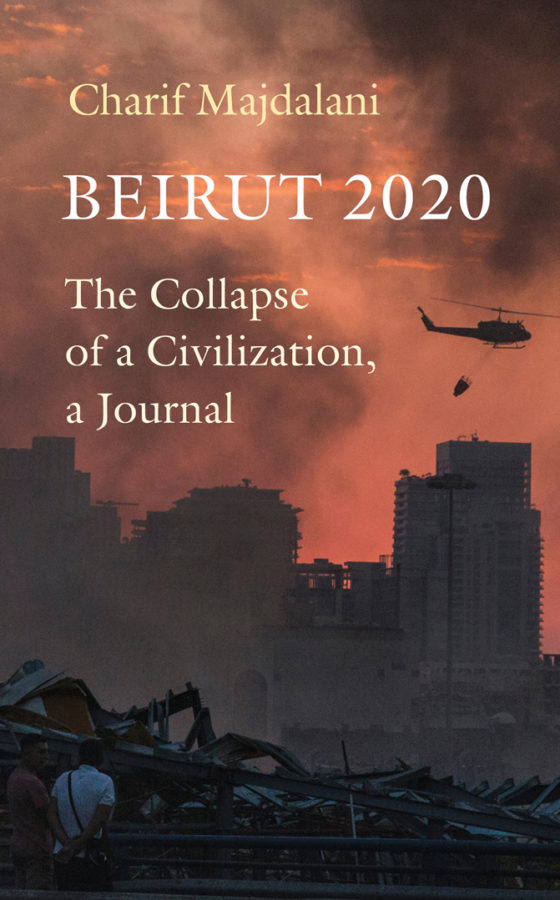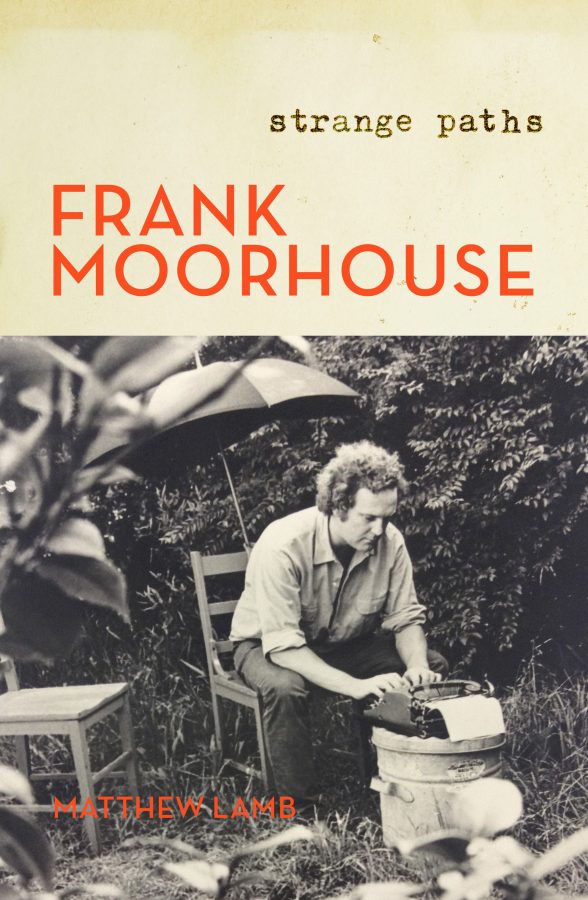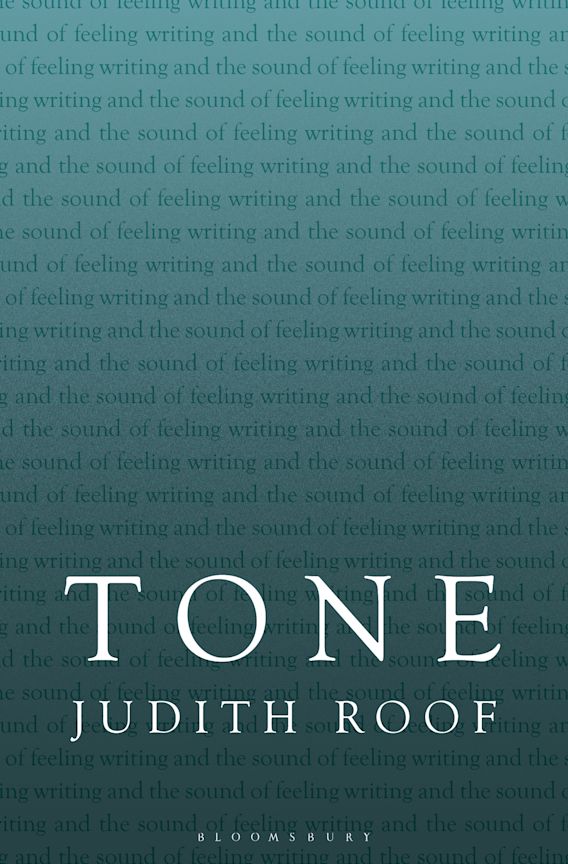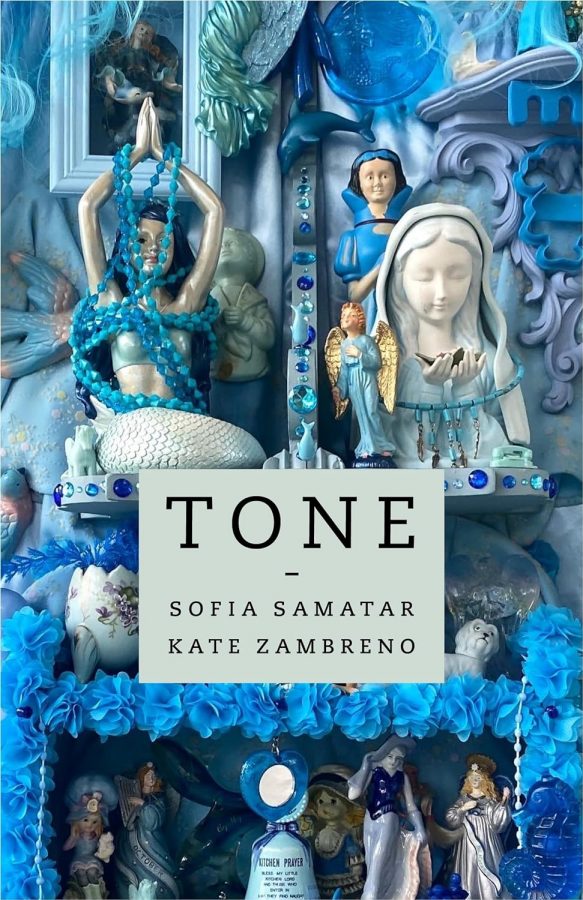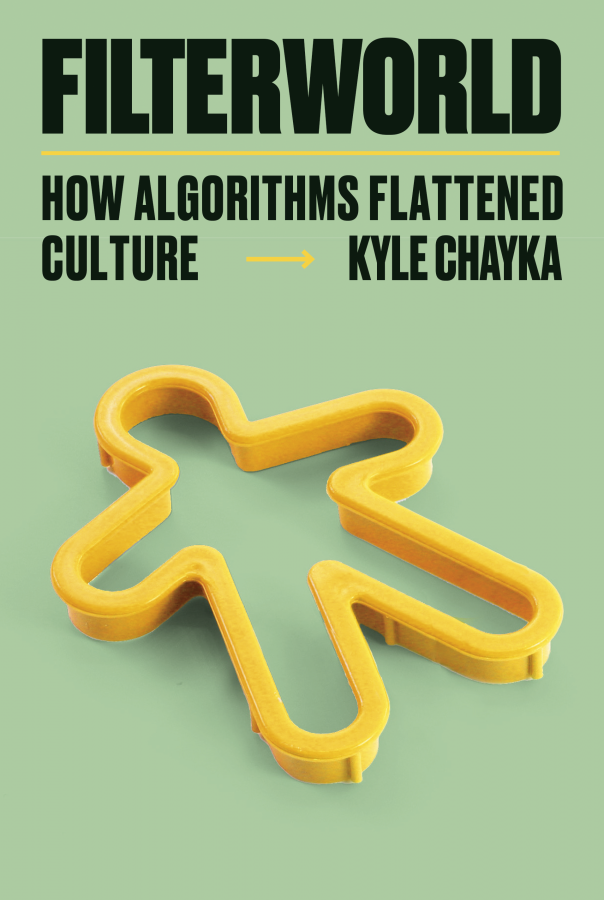‘The worst misery is yet to come. We haven’t seen anything yet.’ It is July 2020, and the author Charif Majdalani is conversing with a plumber who is repairing a leak under the author’s sink. The two men are chatting about the plumber’s apprentice, who moments earlier was dispatched to the car for a forgotten tool. Majdalani observes that the man seems at once too old and inexperienced for the trade.
‘He’s my older brother, he basically raised me and my brothers,’ the plumber explains. ‘I bring him along with me… so he feels like he’s working.’ The plumber’s apprentice has recently been laid off from his job. He is entitled to welfare but the Lebanese social security fund is bankrupt, which means that he – and countless other workers – will never see his savings, contributions or entitlements.
It’s just one bleak scene of many in Majdalani’s memoir Beirut 2020: The Collapse of a Civilization, A Journal, but it’s the one I find most confronting. Confronting because the sentence on misery now reads as a sort of premonition. It is from a diary entry written almost two weeks before the horrific Beirut port explosion on 4 August 2020 that devastated Lebanon’s capital, killing 217 people, injuring over 7000 and causing billions of dollars of property damage.
Perhaps it’s the confidence in which this sentence is uttered by the plumber that triggers me. As if after years of turmoil and what we know now were fake pledges to rebuild from those ruling the country, the Lebanese were at last giving up hope.
I came across Majdalani’s memoir entirely by chance, but my interest was piqued by its premise: a citizen walks the streets of his native city – once brimming with zest and joie de vivre – to document the resilience of his community in the wake of the simmering social unrest.
I have always loved the way that ideas percolate in the minds of writers walking towns and cities. Ernest Hemingway, Henry Miller, Tony Birch, JK Rowling, Edmund White. And Lauren Elkin, whose 2016 book Flâneuse: Women Walk the City in Paris, New York, Tokyo, Venice, and London got me interested in the figure of the flâneur in the first place.
In this case the subject matter was also personal. Like many Lebanese kids born in foreign lands to parents who fled the civil war that raged between 1975 to and 1990, Lebanon was sacred, the place that informed our way of life. Beirut signified an exotic, glamorous nostalgia, especially among those of us who hailed from the country’s remote villages. But Lebanon was also simultaneously an abstraction: a place from which we had inherited a trauma that we never really understood, because the memories were too painful, the circumstances taboo.
I wanted to understand some of it, any of it, in the hope that it would help me make sense of the fact that this place I loved suddenly felt like a failure, a failed state, an embarrassment on the world stage, a place not at all worthy of love and reverence. When you’re a racially-diverse person in a white western nation, your Otherness can already be something to feel shame about. And it’s intensified when the place you’ve originated from is looked down upon.
I felt this shame all the more because my knowledge of war-era Lebanese politics was patchy and unofficial, forged in my observations of, and conversations with, family and friends. Childhood memories of men in my father’s house raising their voices in passionate disagreements over political leaders, whatever I’d garnered from the movie West Beirut, a couple of Google searches. It was what came after that became more important: songs like raje3 yet3amar raje3 Lebnan and Lebnan la7 yerja3 which rallied our communities with sentiments about Lebanon once again rising to its former glory.
Reading Majdalani’s book wasn’t my first foray into Lebanese history, but it was the one that engaged me most. Other accounts of Lebanon’s history sit unfinished on my bookshelves.
Majdalani’s journal was compelling and personable, and a surprisingly easy read despite its oft depressing content. I found myself wanting to document the experience of reading Majdalani’s journal, to connect with the incidental way he captured our shared motherland at a singular moment in its history. This was a primary source that would invite me in to share the pain, so unlike the dry and objective arms-length journalism and history I was accustomed to.
The preface to the English language edition (Beirut 2020 was originally published in French in 2020, the English translation by Ruth Diver appeared in 2021), ‘The Lessons of Complexity,’ provides a crash-course in the history of the mountainous geographical region that became the Republic of Lebanon in 1920. The country was unique among its neighbours because it did not entirely belong to the Arab world, on account of the Eastern-rite Christians that its borders had united, but it was not a Western country either – due to its significant Muslim and Druze populations. Majdalani presents the Republic of Lebanon as a successful democracy with a liberal economy, the only country in the region not to fall prey to a nationalist military dictatorship like Egypt under Nasser or Iraq and Syria under the Baath parties – a place that ‘lived for thirty years in unbelievable opulence and enjoyed exceptional cultural and economic vitality,’ until the simmering tensions of its sectarian foundations gave way in the country’s first collapse.
While I finished the preface significantly wiser, I found it painful. It had taken me years to recognise the biases embedded in the psyche of people who fled the country in the 70s and 80s. Unlike their compatriots in the motherland, civil war-era emigrants seemed to be bound by the divisions that plunged their nation into war and plagued it for decades after. There were particular traumas associated with these divisions: a resentment towards the armed Palestinian militias that had sprung up in the post-Nakba refugee camps, demanding a role in internal Lebanese politics in the early 70s; the eventual arrival of other foreign interest groups and parties, most notably the Syrians and the Israelis; the massacre of Christian villagers by Palestinian militias in Damour and the two-day massacre of Palestinians by right-wing Phalangist Christians in Sabra and Shatila; the in-fighting between various Christian groups, who, arming themselves silly or in some cases forming alliances with the Israelis, squared off at each other, resulting in terrible death tolls among innocent families and that still dictate loyalties in some parts of northern Lebanon today.
Recognising these biases and traumas helped me understand the way the relationships between religious and political factions played out in Australia in a way that had never been explained to me before. In realising this I decided that I would take care not to inherit those biases myself. Which is part of the reason I found myself surrounded by the loving Arab-Australian arts community that rallied around Lebanon in the wake of the 2020 blast, a community made up of people from diverse Arab backgrounds who were keen to put the past behind them.
After reading the preface, it would be some weeks before I returned to Majdalani’s journal. By this point, this essay had been commissioned and I was committed to it, which meant I had to read the book, as painful as I found the material. The diary entries begin on 1 July 2020, just over a month before the port explosion.
Majdalani spends his day ‘running from one bank to the other, converting dollars into pounds at the official rate, then comparing that to the banks’ rates, then to the changers’, then to the black-market rate, doing calculations, planning [his] expenses half in checks and half in cash.’ Like many around him, he’s trying to stretch his dollar any way he can as his world is falling apart, both literally and figuratively. Repair men make cameos regularly throughout his journal, fixing taps and washing machines. The city is plunged into darkness because there’s no electricity, and people can’t access their own savings because the money just isn’t there.
Despite this the city he walks is ‘seized by a frenzy of activity… just like in the glory days of its suddenly vanished opulence.’ I can’t help but read one of his observations about the Beirut cityscape as a metaphor for the nation’s gradual unravelling:
All along the street, the pubs looked like great islands of light spreading to the edge of the sidewalks, erupting with babble and laughter. But once you walked past the last of them, it was like leaving an ancient town, beyond which there is only forest – pitch black.
The darkness by which Lebanese people are now forced to live might as well be a literal and physical manifestation of their being in the dark about the failures of their government. Majdalani’s contempt for the leaders that plunged his compatriots and his nation into one disaster after another is palpable. Not only has he done the maths (thirty years it took for the first republic to collapse; then thirty ‘glorious’ years of relative peace as Beirut once again became the party town of the Middle East before collapsing again in 2020), he’s done it with a frankness that I find surprisingly necessary. Perhaps because even in the face of the country’s ruin the same factions still enjoy the loyalty of their supporters, even those on the other side of the world.
The journal moves through the month of July juxtaposing short musings on daily life (Beirut traffic, the acquisition of school supplies, hang outs with friends) with more of Lebanon’s murky political history. I had hoped that I would find expressions of the Lebanese zest for life that I am so fond and proud of in the journal, but there were no romanticised explorations of an ancient city and complex civilisation.
Instead, Beirut 2020 gives a first-hand account of the consequences of the nation’s unravelling. Majdalani writes matter-of-factly about the problems plaguing his nation, about people whose problems need no embellishment. In late July, he notices his wife’s anxiety has resulted in her sitting at her computer for lengthy periods, not answering emails or recording notes, but for longer spells just writing and writing. She’s a psychotherapist and she admits that she’s partaking in a self-therapy exercise, where she is at once both therapist and patient. She lets him read her notes.
She writes about her country in its ‘death throes,’ about the loss of their former lives, the splendour in which they once lived, and the dreams they shared. But the loss is even more poignant, reading about it a year on, and knowing the port explosion was still to come. At the conclusion of her therapy session, she writes of a mourning for the ‘other potential deaths to come…’
The contrast between splendour and ruin is deeply unsettling. Majdalani writes of two Lebanons, past and future both fighting for the present. He spares no one as he attempts to negotiate an outcome, or at least, an understanding of ‘where to from here?’ Not the citizens swept up in the ‘temptation of denial, the same ‘denial that allowed [them] to live so cheerfully for thirty years’.’ He doesn’t spare the activists on social media reinforcing the ‘infernal backdrop’ of day-to-day life with its increasing poverty, mass lay-offs, and suicides, ‘all continuously being shown…virtually, through social media,’ or the beggars on Beirut’s streets: women, children, and old men who had ‘developed a whole economy of the outstretched palm’.
And Madjalani certainly does not spare those at the helm of the country’s collapse: warlords-turned-politicians who sprang forth ‘in the euphoria of the return to peace and the expectation of fabulous opulence.’ Through them, Majdalani argues, ‘the tentacles of a gigantic system of siphoning funds allocated to the country’s reconstruction were efficiently put into place,’ a system of useless construction sites, routine slush funds, favours and kickbacks, and ‘off-book funds’ which were ‘never subject to any kind of scrutiny for over thirty years, and where more than twenty billion dollars are said to have disappeared.’
Majdalani’s August 2020 journal begins with a short musing on Christmas. Last year they couldn’t have lights, this year they probably won’t even get a tree. His friend makes plans to emigrate, just like she did during the civil war, only permanently this time. The day before the blast, he reflects on the ‘medley of bad news’ as ‘endless,’ remembers police officers blocking protestors during the previous year’s Thawra (revolution), which kicked off when the government attempted to tax WhatsApp calls. The page on 4 August is incomplete. He doesn’t write again till 10 August.
I stop reading and go through my own social media accounts to fill in the blanks.
My first acknowledgement of the blast, on 5 August, is to reshare a post by Gino Riady who urges his followers not to let their governments send money to Lebanon’s own government, but instead to NGOs like the Red Cross. ‘The Lebanese governments steals aid,’ he writes, ‘they did it in 2006 and they’ve been stealing for thirty years. #Beirutexplosion.’
I share a few slides on Impact Lebanon’s Disaster Relief on Instagram and a tweet by Yousef Munayyer who points out that in addition to dealing with its own internal issues, Lebanon had spent its relatively short history carrying heavy burdens from regional disasters that the international community failed to address. I think about the kaleidoscope of refugee communities – White Russians, Armenians, Palestinians, and Syrians who have contributed to Lebanon’s fabric over the last hundred years or so, and realise he’s right.
Then there’s a whole thread of me being emotional, talking about the non-tangible losses for us out in the diaspora. Mourning for a place that I was supposed to visit that year had Covid-19 allowed, for a place that my kids will never really know in the same way that my parents did, and for my generation, who only knew it from a place of imagined nostalgia. I tweet about crying for my cousins, aunties, uncles, and grandparents. About yearning to sit on my grandfather’s lap or watch my children run in olive groves and fetch eggs from my grandmother’s chicken coop. I share lyrics from Fairouz songs.
In hindsight I wonder if I was being incredibly self-indulgent.
On 6 August, I share a bunch of content that isn’t mine. An article about how ammonium nitrate ended up in Beirut port. Posts from Australian-based charity Steps of Hope, and resources on how to aid Lebanon. Macron’s visit to Lebanon. Retweets from Germany, the UK, Poland, Jordan and Algeria, who pledge aid, manpower, equipment, help. Images of the dead, like 27-year-old firefighter Sahar Fares, who perished just shy of her wedding and whose funeral procession was accompanied by the traditional Lebanese zaffe or wedding dance. Images of the suffering, like the mother who gave birth to twins in a decimated hospital, surrounded by wreckage and broken glass and faulty equipment. And some waffle about a whinging white woman, who is complaining because, in the midst of the pandemic here in Australia, she can’t get her hands on any radicchio.
On 8 August, I join others in tweeting then NSW Premier Gladys Berejiklian, asking her to light up the Opera House in the colours of the Lebanese flag. I know even then that those lights accomplish nothing, but I see them as a small comfort to people on the other side of the world who have been abandoned by their own leaders. I share a picture of Brisbane landmarks lit up in the colours on the flag, an Instagram reel made by writer @rawaharja commemorating the dead, the breaking news that the Australian victim of the blast was two-year-old Isaac Oehlers.
9 August. I share a picture of two friends having a coffee in a roofless, wall-less building. The nonchalance with which they seem to be sharing that morning ritual is decidedly Lebanese. A tweet by a man named Raed Yassin, who quotes mother Rana Hamadeh’s incredulous observation that she wasn’t allowed to receive the body of her son before paying an outstanding speeding ticket. And a picture of the board outside Newtown’s fire station, which spells out the Arabic translation of ‘our heart is with you’ in the English alphabet.
10 August. The Sydney Morning Herald publishes a piece I wrote calling on the NSW Premier to light up the Opera House. Most people are incredibly lovely in their responses, but I face a few trolls both within and outside my community. Prime Minister Scott Morrison lifts our aid commitment to a total of $5 million dollars and many Lebanese Australians excitedly froth in his Instagram comments. Sweatshop Western Sydney Director Michael Mohammed Ahmad announces a fundraiser featuring a dozen Arab-Australian writers and artists, which eventually raises $3000. I promote and participate in a Better Read Than Dead fundraiser too and spend my days liaising with Lebanese women on social media, as part of a feature I’m writing for a glossy women’s lifestyle magazine. ‘We don’t want to be resilient anymore,’ one of them tells me. I understand how much we’ve been romanticising their strength. How much more do they have to put up with? That same afternoon, I’m interviewed on ABC radio about my piece in the Herald. When they ask me what I want for Lebanon, I realise that my opinion doesn’t really matter: I’m not the one living there.
Majdalani’s journal in the aftermath of the blast makes for even bleaker reading. His kids are depressed, his friends are in hospital, no one is eating or sleeping or in some cases, surviving. He remembers old acquaintances as he passes through damaged streets, unable to contact them on any of the phone numbers he has. On 13 August, he returns to his writing spot on the terrace, and notices his wife is no longer writing as part of her self-therapy. She’s too busy with urgent consultations. By 18 August, Covid numbers have once again soared throughout the country, a consequence of Beirut’s people sharing living quarters, and the rest of the country stepping in to help the city’s residents clean up, repair, rebuild what they can. I wonder if they are working in vain but as always, admire their tenacity.
All around the world, the Lebanese are at last, no longer in the dark. In Beirut, Majdalani tells us, the writing is on the wall: pieces of graffiti popping up in neighbourhoods alongside Lebanese flags, reminding those who have not been paying attention: The government is trying to overthrow the people.
